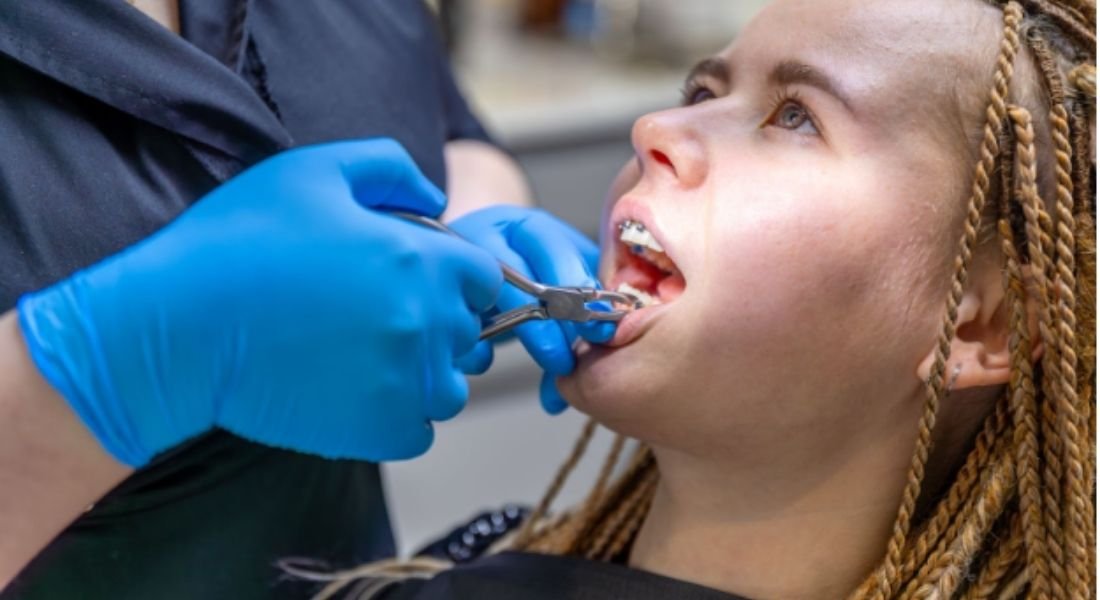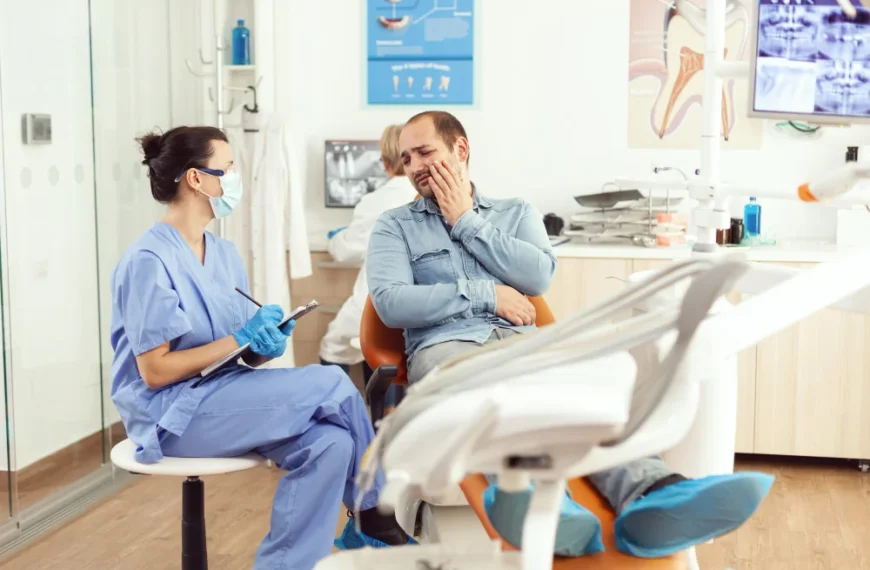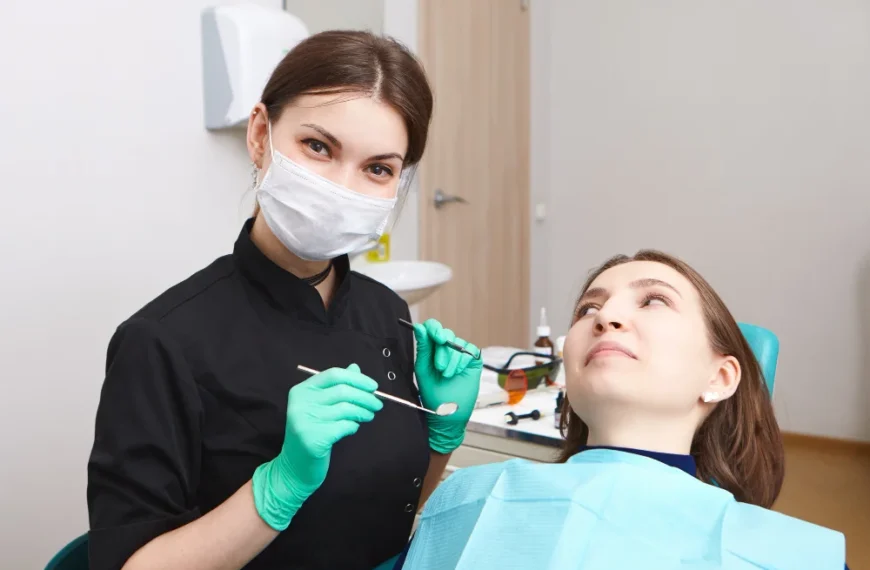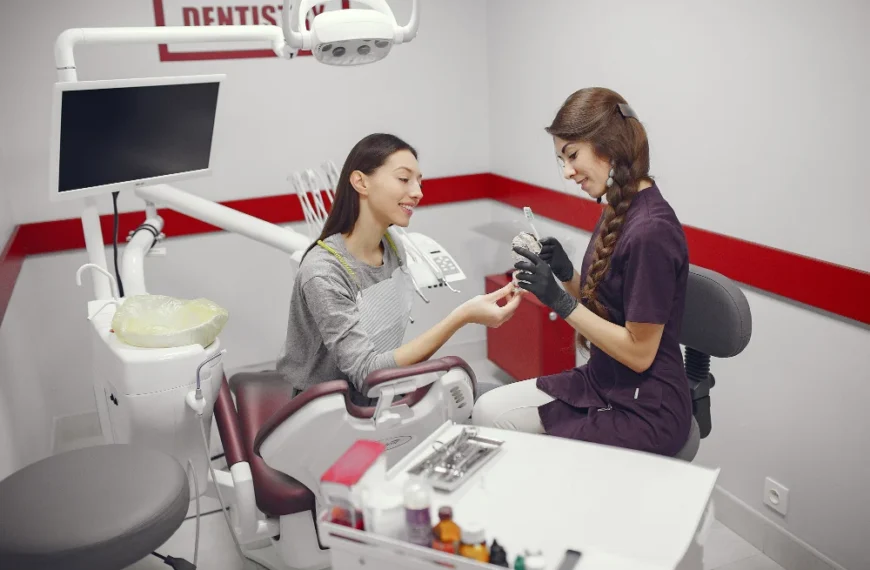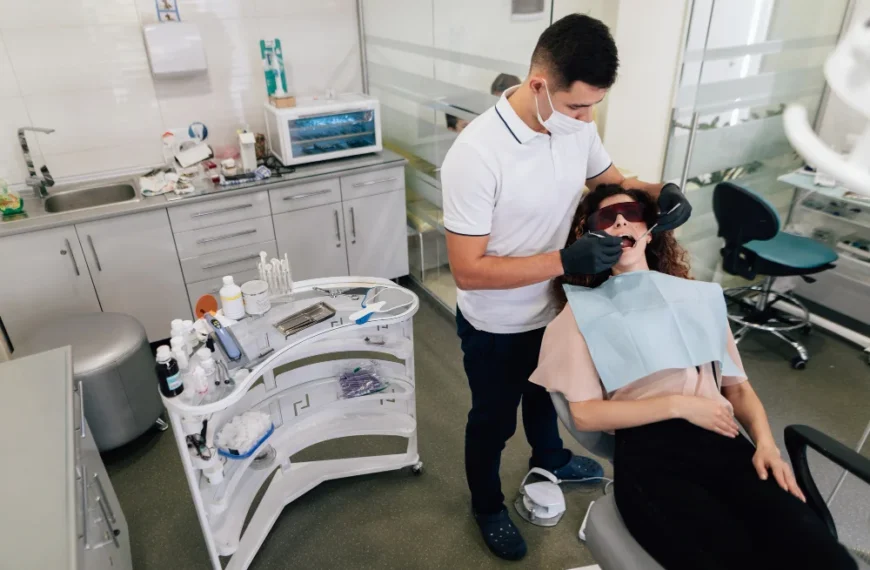Teeth grinding silently damages your dental health. Fixing grinded teeth ensures lasting oral function and better overall wellness. Left untreated, grinding causes enamel loss, jaw pain and broken teeth.
Fortunately, dentistry offers several proven solutions. These range from cosmetic to restorative procedures. Each method improves aesthetics and functionality. This guide explores effective ways for fixing grinded teeth with modern treatments.
Fixing Grinded Teeth: Why It Matters for Long Term Oral Health
Fixing grinded teeth isn’t just cosmetic. It prevents further damage to enamel, nerves and dental structure. Prolonged grinding leads to tooth sensitivity, cracks and jaw misalignment. Dentists stress early treatment to avoid long term consequences.
Restorative methods improve bite balance and reduce pain. Patients also regain confidence in their smile. This article covers all aspects of treatment, prevention and dental options.
Understanding What Causes Teeth to Grind at Night
Teeth grinding, or bruxism, often occurs at night without you realizing. Stress remains the top contributing factor. Anxiety, unresolved tension and poor sleep habits can trigger nighttime clenching.
Sleep disorders like apnea also cause bruxism. Some people grind due to crooked teeth or missing molars. Lifestyle habits, including smoking and alcohol, increase risks. Addressing root causes helps stop further damage.
Early Signs You’re Grinding Your Teeth in Sleep
Many don’t know they grind their teeth until symptoms appear. Morning headaches are an early warning sign. Tooth sensitivity, especially to cold, often indicates enamel damage.
Jaw soreness or tightness is another red flag. Your dentist may notice wear patterns or flat chewing surfaces. If unchecked, grinding leads to fractures. Catching signs early makes fixing grinded teeth easier and more effective.
What Happens If You Ignore Tooth Grinding?
Ignoring bruxism leads to severe dental complications. Over time, constant grinding flattens or chips teeth. Enamel loss exposes sensitive layers, increasing pain and decay risks.
TMJ disorders may develop, causing jaw pain and limited motion. The teeth may shift out of place, affecting your bite. These issues worsen without treatment. Fixing grinded teeth early reduces costs and long term dental problems.
Grinded Teeth Repair: Restoring Structure and Strength
Grinded teeth repair involves several procedures to rebuild worn enamel and restore function. Dentists may use bonding to cover worn areas. Veneers can protect and reshape teeth.
In severe cases, dental crowns offer full coverage and strength. For missing enamel, composite fillings help rebuild structure. These treatments enhance bite alignment. Patients regain chewing comfort and teeth become aesthetically balanced again.
Best Treatment Options for Fixing Grinded Teeth
There are various treatments available depending on the severity. Dental bonding covers minor enamel wear. Porcelain veneers offer a natural look while protecting front teeth. Crowns provide full coverage for heavily damaged molars.
Inlays or onlays can rebuild biting surfaces. Orthodontic adjustments may be needed for misaligned bites. Fixing grinded teeth requires customized care. Dentists assess each case individually for best results.
Night Guards: Preventing Further Grinding Damage
Night guards are essential for preventing further tooth grinding. These custom fitted devices protect teeth from wear during sleep. Soft guards help light grinders, while hard ones suit severe bruxism cases.
They create a barrier that absorbs pressure and reduces friction. Night guards also relieve jaw strain. Consistent use halts progression of damage. They are crucial while fixing grinded teeth and maintaining results.
Dental Crowns for Severe Tooth Wear
Crowns are ideal when grinding causes severe enamel loss. They restore the tooth’s shape, size, and strength. Made from porcelain or ceramic, crowns match natural teeth.
The dentist reshapes the damaged tooth and places the crown over it. This protects the underlying structure. Crowns last for years with proper care. Fixing grinded teeth with crowns improves chewing, speech and aesthetics.
Veneers: Cosmetic Solution for Grinding Damage
Porcelain veneers offer a cosmetic fix for visible front teeth. Thin shells bond to the front surface, hiding wear. Veneers resist stains and mimic enamel closely.
They work well for patients with light to moderate grinding damage. Before placement, dentists ensure bruxism is under control. Fixing grinded teeth using veneers enhances smiles and restores confidence. The results can last over a decade.
Composite Bonding: Fast and Affordable Repair
Composite bonding provides a fast, non invasive repair method. It works best for small chips or surface wear. The dentist applies resin and shapes it to match your natural tooth.
The material is hardened with light and polished. This technique costs less than veneers or crowns. Bonding is a good first step in fixing grinded teeth, especially for younger or budget conscious patients.
Orthodontic Corrections for Bruxism-Related Misalignment
Tooth grinding often affects alignment. Over time, teeth shift due to uneven pressure. Orthodontic treatment realigns teeth for a balanced bite. Braces or clear aligners may be recommended.
Proper alignment reduces grinding triggers. Fixing grinded teeth sometimes includes orthodontic work to correct the bite. This ensures long lasting relief and prevents further dental damage from recurring grinding behaviors.
Dental Implants for Lost Teeth from Grinding
Severe bruxism may lead to tooth loss. Dental implants restore missing teeth and support jaw health. Implants use titanium posts placed into the jawbone.
A crown is attached above to replicate a natural tooth. Implants prevent bone loss and maintain facial structure. Fixing grinded teeth sometimes involves replacing severely damaged teeth. Implants offer a strong, permanent solution for long term function.
The Role of a Prosthodontist in Complex Cases
A prosthodontist specializes in restoring and replacing damaged teeth. Patients with severe grinding benefit from their expertise. They design full mouth restorations when needed. A detailed treatment plan covers every tooth affected.
This specialist helps ensure symmetry, strength and beauty. Fixing grinded teeth becomes more effective with expert care. Collaboration between general dentists and prosthodontists delivers optimal long term outcomes.
Lifestyle Changes That Support Dental Repair
Fixing grinded teeth goes beyond dental work. Lifestyle changes play a major role in prevention. Reduce caffeine, especially before bed. Cut down on alcohol and tobacco, which worsen grinding.
Practice stress relieving techniques like meditation, yoga or deep breathing. Establish a consistent bedtime routine. Good sleep hygiene supports muscle relaxation. These changes complement treatment and protect your smile.
Stress Management to Reduce Grinding
Stress is a major driver of bruxism. Managing it lowers grinding frequency. Cognitive behavioral therapy helps identify and manage stress triggers. Physical activity like walking or swimming reduces anxiety levels.
Breathing exercises relax jaw muscles. Limiting screen time before bed improves sleep. Fixing grinded teeth becomes more successful with mental health support. Treating the cause ensures lasting results.
Regular Checkups Help Catch Grinding Early
Regular dental visits detect grinding damage early. Dentists check for signs like enamel wear and gum recession. Early intervention means less complex repair work.
Cleanings also remove plaque, helping with overall oral health. Fixing grinded teeth starts with early diagnosis. Seeing your dentist every six months ensures timely prevention and prompt care when needed.
Cost of Fixing Grinded Teeth in 2025
The cost depends on damage severity and treatment type. Composite bonding costs around $300 per tooth. Veneers range from $800–$2,500 per tooth. Crowns cost $1,000–$3,000 each.
Implants can go up to $5,000 per tooth. Insurance may cover part of the expense. Fixing grinded teeth is a long term investment. Choose qualified dentists to ensure value and durability.
Are Home Remedies Effective?
Home remedies offer support but not full repair. Mouth exercises relieve jaw tension. Warm compresses reduce muscle tightness. Herbal teas like chamomile promote relaxation.
However, these methods can’t restore worn enamel. Fixing grinded teeth requires professional treatment. Home care helps manage symptoms but can’t replace clinical dental solutions.
Pediatric Bruxism: What Parents Should Know
Kids can grind their teeth too. Often it’s temporary and linked to growth or teething. However, persistent grinding requires attention. Pediatric dentists may recommend night guards or behavioral therapy.
Fixing grinded teeth in children involves monitoring and gentle guidance. Catching the problem early protects developing teeth and supports lifelong dental health.
Fixing Grinded Teeth: Long Term Results and Outlook
With proper treatment, outcomes are very positive. Repaired teeth regain strength and functionality. Night guards prevent relapse. Cosmetic improvements boost confidence.
Fixing grinded teeth leads to better chewing, speaking and comfort. Patients must maintain oral hygiene and follow aftercare. Periodic dental checkups ensure results remain long lasting and effective.
Conclusion: Take the First Step Toward Dental Health
Teeth grinding damages more than your smile. If left untreated, it affects your jaw, bite, and confidence. Fortunately, fixing grinded teeth is possible through advanced dental solutions.
Whether it is bonding, crowns or implants, the right approach restores both health and appearance. Don’t delay treatment. Take the first step and consult your dentist for a customized plan today.

